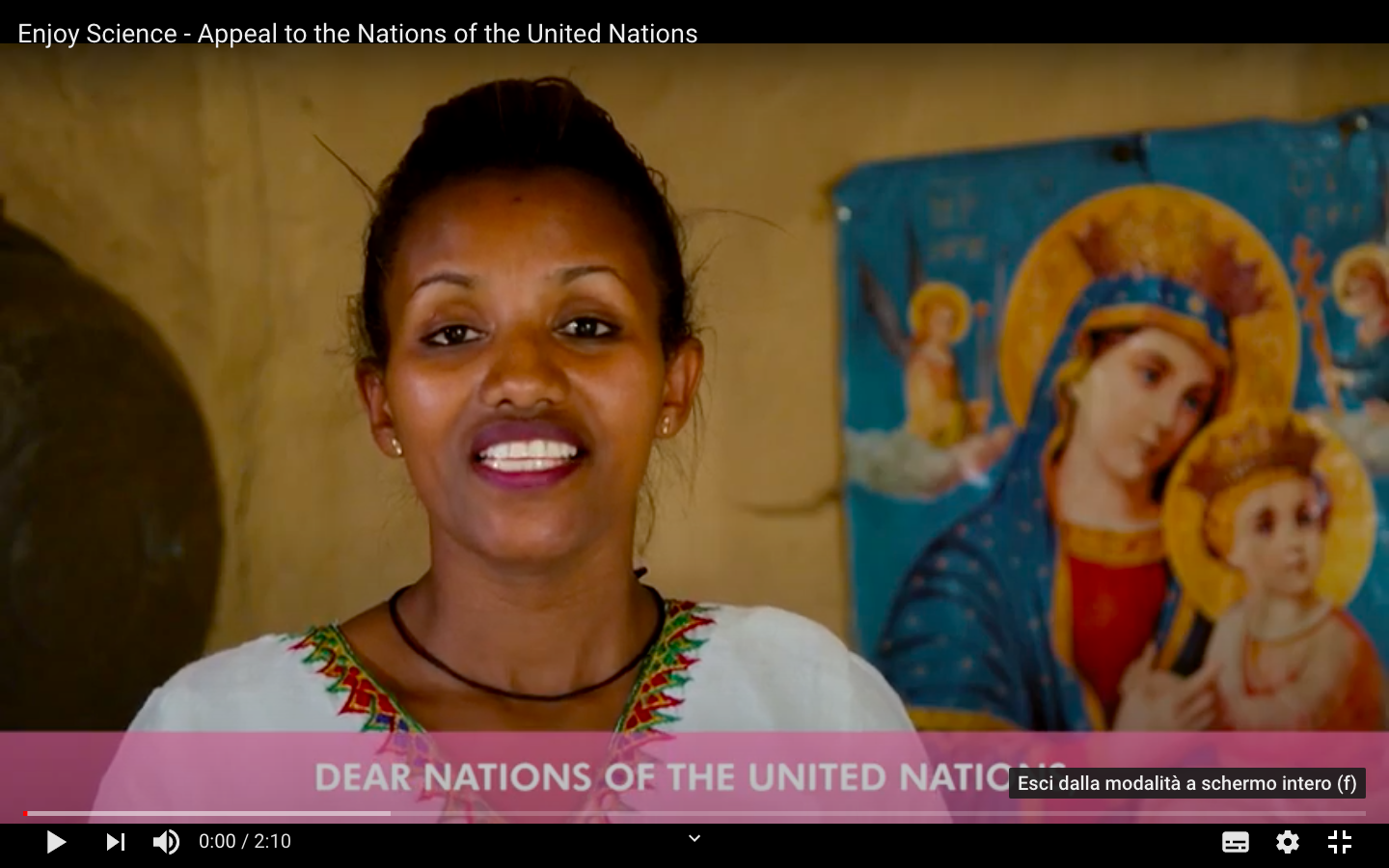
On the 10th of November 2020, on the occasion of the World Science Day for Peace and Development, Science for Democracy launched the Appeal for the Right to Science.
The launch of the appeal was anticipated by a 3-hour webinar titled “The Human Right to Science. Discuss it. Explore it. Enjoy it.”. Scientists, jurists, decision-makers, experts and human rights activists gathered together to underline the importance and relevance of science in our daily lives.
The basis for the webinar and for the appeal for the Right to Science is the General Comment on Science adopted on April 2020, the UN Committee on Economic, Social and Cultural Rights
The Human Right to Science. Discuss it. Explore it. Enjoy it.
- Laura Convertino, Steering Committee Science For Democracy – Watch Video
- Marco Cappato, Treasurer Associazione Luca Coscioni, Co-founder Science for Democracy – Watch Video
- Mikel Mancisidor, Member UN Committee on Economic, Social, Cultural Rights (CESCR) – Watch Video
- Richard Roberts, Nobel Laureate in Physiology or Medicine, Chief Scientific Officer, New England Biolabs – Watch Video
- Giulia Perrone, Phd Student, University of Turin, Research and Advocacy Officer, Science for Democracy – Watch Video
- Andrea Boggio, Professor of Legal Studies, Bryant University, Steering Committee, Science for Democracy – Watch Video
- Jessica Windham, Director of the Scientific Responsibility, Human Rights and Law Program of the American Association for the Advancement of Science (AAAS) – Watch Now
- Margaret Karembu, Director, ISAAA AfriCenter, chair of the Open Forum on Agricultural Biotechnology (OFAB) Kenya Chapter Programming Committee – Watch Video
- Ghada El Kamah, Professor of Clinical Genetics, Coordinator of the Hereditary Blood Disorders and Genodermatoses Clinics and Research Teams, Human Genetics and Genome Research Division, National Research Centre, Cairo, Egypt – Watch Video
- Neil Datta, General Secretary, European Parliamentary Forum for Sexual and Reproductive Rights – Watch Video
- Hon Dr. Chris Kalila, Chair, Parliamentary Health Committee in the Republic Of Zambia, Member, Global Parliamentary Alliance for Health, Rights and Development (GPA) – Watch Video
- Cesare Romano, Professor of International Law and W. Joseph Ford Fellow, Loyola Law School Los Angeles, Steering Committee, Science for Democracy – Watch Video
- Thomas Köenig, Senior researcher and head of strategy, Institute for Advanced Studies (IHS) in Vienna – Watch Video
- Katharine Rietig, Senior Lecturer/Associate Professor in International Politics, Newcastle University, UK – Watch Video
- Tracey Brown, Director, Sense about Science – Watch Video
- Claudio Radaelli, Professor of Public Policy, UCL London, Professor of Political Science, School of Transnational Government, EUI, Steering Committee, Science for Democracy – Watch Video
The Appeal for the Right to Science – Full Text
We call on Governments:
- to promote the General Comment No. 25 (2020) on science and economic, social and cultural rights (article 15 (1) (b), (2), (3) and (4) of the International Covenant on Economic, Social and Cultural Rights (ICESCR) as a guide for the full enjoyment of the Right to Enjoy the Benefits of Scientific Progress and its Applications;
- to dedicate a specific section on science-related issues during their Universal Periodic Review before the UN Human Right Council as well as in their periodic reports to the UN Committee on Economic Social and Cultural Rights (CESCR);
- To ratify the Optional Protocol to the ICESCR that recognizes the competence of the CESCR to receive and consider communications as provided for by the provisions of the protocol;
- to adopt all necessary legislation to fully respect their international human rights obligations concerning the enjoyment of human rights and, in particular, the duty to respect, protect, fulfill, and promote the right to science;
- to support, also financially, the scientific enterprise at the national, regional and international level that is gender inclusive;
- to promote an open access to scientific literature, discoveries and developments in a transparent manner consistently with local and global interests and needs, both public and private;
- to promote and protect scientific culture and education, including humanities, at the national level, also through international cooperative projects with particular attention to low and medium income countries;
- to dedicate significant resources to promote science, technology, engineering and maths (STEM) and to integrate them with the arts (STEaM) across the wider educational curriculum with particular attention to girls, women and groups with special needs;
- to limit the regulation of research only insofar as it may violate human rights, and the regulations of limitations to the enjoyment of human rights recognized in international law, the right to privacy included;
- to initiate the necessary procedure to establish the position of the Special Rapporteur on the Right to Science to assist Member States in their normative efforts to promote and protect such right, and to monitor science-related concerns and developments globally;
- to consider the right “of” and “to” science as THE theme for the general debate of a future session of the General Assembly of the United Nations.
- [for Member States of the Council of Europe] to amend the European Convention on Human Rights so as to include a clear mention to the “right to science” along the lines of all other major international human rights instruments.